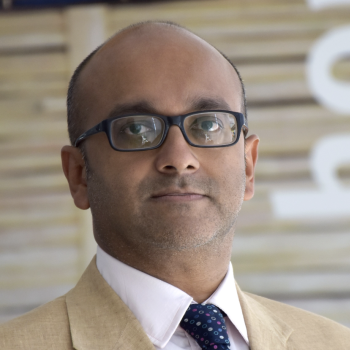Amplifying development opportunities and global leadership for Botswana
The Resident Coordinator in Botswana, Zia Choudhury, has been very focused on supporting the Government of this upper middle-income and landlocked country to advocate for key issues effectively, while also amplifying the UN contributions to national policy processes and critical decisions.
-
The role of the Resident Coordinator as the senior-most representative of the UN development system is well recognized in the country, facilitating streamlined interactions relating to key national priorities. His ability to convene expert voices from around the UN system and other development agents globally has been useful to key development processes in Botswana, including coordinated support to national development planning processes, and even advisory/technical services to regional peacekeeping missions.
-
Under the independent banner of the Resident Coordinator and his office, the UN country team has been able to address key issues strategically through the team’s joint analysis of the country’s development situation. As a result, a distinct area of work to advance gender equality and women’s empowerment has been included for the first time as a UN programme priority in the new UN Sustainable Development Cooperation Framework agreed with the Government for the period 2022 to 2026.
-
The UN country team in Botswana now has a far more diverse and active participation by different stakeholders than in past years. A key focus has been to create opportunities for civil society and private sector perspectives to be more systematically included in designing UN’s programmes and voicing their needs. For example, the UN Country Team has supported civil society engagement in the constitutional review process.
The Resident Coordinator, supported by the economist in his office, was also instrumental in ensuring effective UN support to the Government in connecting with global priorities and processes in 2022, by supporting Botswana’s Presidency of the UN Economic and Social Council (ECOSOC) this year and the country’s presentation of its Voluntary National Review of progress towards the Sustainable Development Goals (SDGs) at the UN High-Level Political Forum on Sustainable Development.
-
The UN’s capacity building for government counterparts included a series of ‘foresight’ sessions which supported the Government to better plan for the ECOSOC Presidency, with several of the ideas put forward in these sessions taken up during the Presidency, including on vaccine inequality, urban sustainability, and risk informed planning. The coordination role enabled key expertise to be sourced in various agencies, including the UN Development Programme (UNDP), the UN Children’s Fund (UNICEF), the UN Population Fund (UNFPA) and the Food and Agriculture Organization (FAO) as part of the core team in support of the SDG Voluntary National Review. The participatory approach for the review also ensured unprecedented levels of consultations across several towns and villages.


